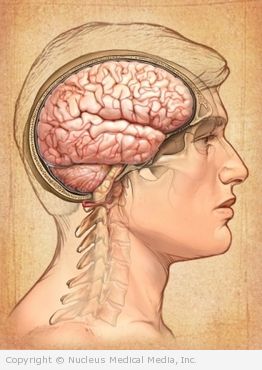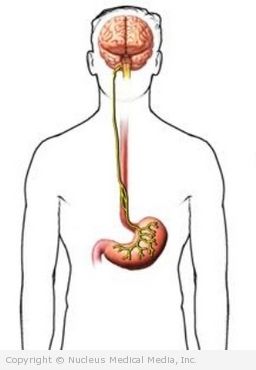(Major Depressive Affective Disorder; Unipolar Disorder; Unipolar Mood Disorder)
Depression – Definition
Depression is a mental illness marked by feelings of profound sadness and lack of interest in activities. Depression is not the same as a blue mood. It is a persistent low mood that interferes with the ability to function and appreciate things in life. It may cause a wide range of symptoms, both physical and emotional. It can last for weeks, months, or years. People with depression rarely recover without treatment.
Depression – Causes
While the exact cause is not known, factors that may play a role in depression include:
- Having a family history of depression (genetic link)
- Having a certain type of brain chemistry
- Experiencing stressful or traumatic life event (eg, death in the family, divorce, job loss)
Depression – Risk Factors
There are a range of factors that may increase your risk of depression. Examples include:
- Gender: female
- Previous episode of depression
- Hormonal changes
- Chronic conditions (eg, hypothyroidism, type 2 diabetes, heart disease, cancer, chronic pain, stroke, Parkinson’s disease)
- Other conditions related to mental health (eg, anxiety, drug abuse, insomnia, personality disorder)
- Emotional or social factors, such as:
- Little or no social support
- Negative thought patterns and beliefs
- Low self-esteem
- Lack of personal control over circumstances
- Feelings of helplessness
Depression – Symptoms
Depression can differ from person to person. Some people have only a few symptoms, while others have many.
Symptoms can change over time and may include:
- Persistent feelings of sadness, anxiety, or emptiness
- Hopelessness
- Feeling guilty, worthless, or helpless
- Loss of interest in hobbies and activities
- Loss of interest in sex
- Feeling tired
- Trouble concentrating, remembering, or making decisions
- Trouble sleeping, waking up too early, or oversleeping
- Eating more or less than usual
- Weight gain or weight loss
- Thoughts of death or suicide with or without suicide attempts
- Restlessness or irritability
- Physical symptoms that defy standard diagnosis and do not respond well to medical treatments
Depression – Diagnosis
There is no blood test or diagnostic test for depression. The doctor will ask about your symptoms and medical history, giving special attention to:
- Alcohol and drug use
- Thoughts of death or suicide
- Family members who have or have had depression
- Sleep patterns
- Previous episodes of depression
The doctor may also perform specific mental health exams. This will help get detailed information about your speech, thoughts, memory, and mood. A physical exam and other tests can help rule out other causes.
Depression – Treatment
Treatment may involve the use of medicine, psychotherapy, or the use of both.
Severe depression can require hospital care, especially if you are at risk of hurting yourself or others.
Antidepressant Medications
Antidepressant medicines may be most effective in people with severe depression. These medicines can take 2-6 weeks to reach their maximum effectiveness. There are many different types of medicines to treat depression. You will work with your doctor to find the medicine that benefits you the most and has the least side effects.
Therapy
Psychotherapy for depression consists of various types of counseling, such as cognitive-behavior therapy, interpersonal therapy, psychodynamic therapy, or a combination of these. Therapy is designed to help you cope with difficulties in relationships, change negative thinking and behavior patterns, and resolve difficult feelings.
Diet and Exercise
Dietary Changes
Research suggests that diets high in tryptophan and certain B vitamins may be helpful. There is also mixed evidence that omega-3 fatty acids may reduce symptoms.
If you want to take supplements or change your diet, talk to your doctor first.
Dietary Supplements and Herbal Therapy
The herb St. John’s wort may be an effective alternative to standard medicines with fewer side effects. St. John’s wort, though, may reduce the effectiveness of many drugs, such as antidepressants, birth control pills, blood thinners, and other medicines. It is important that you talk to your doctor first before trying any herb.
There is also some evidence that dehydroepiandrosterone (DHEA), a hormone that is available as a dietary supplement, may help some people.
Exercise
A regular exercise program has been shown to relieve some of the symptoms. It should play a large role in the overall management of depression.
Procedures
Electroconvulsive Therapy (ECT)
ECT is the use of an electric stimulus to produce a generalized seizure. It may be used in people with severe or life-threatening depression. ECT is also used for people who cannot take or do not respond to medicine. It is considered a safe and effective procedure.
Vagus Nerve Stimulation (VNS)
VNS is used as therapy for depression when multiple trials of medicine do not work. A pacemaker-like device stimulates the vagus nerve in the neck.
Transcranial Magnetic Stimulation (TMS)
TMS involves the application of low-frequency magnetic pulses to the brain. The change in electrical field stimulates nerves. There are a number of studies that show the benefits of TMS for the treatment of depression. It may be used if you have not gotten better with medicines and psychotherapy
Other Treatment Options
Bright Light Therapy
Your doctor may recommend bright light therapy. This involves being exposed to high levels of light from a special “light box” that has a screen on it.
Meditation
Meditation may help to improve the symptoms of depression.
Depression – Prevention
Strategies to reduce your chance of becoming depressed include:
- Being aware of your personal risk factors
- Having a psychiatric evaluation and psychotherapy if needed
- Developing social supports
- Learning stress management techniques
- Exercising regularly
- Not abusing alcohol or drugs
- Getting adequate sleep, rest, and recreation
- Eating healthy food, including fruits, vegetables, and whole grains


